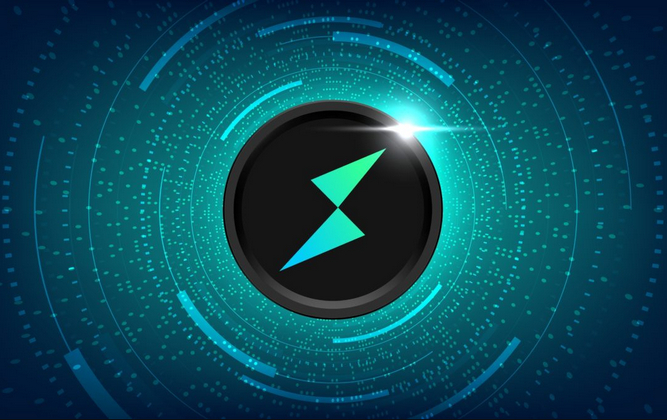-
 Bitcoin
Bitcoin $103,668.9987
1.66% -
 Ethereum
Ethereum $2,645.0693
8.80% -
 Tether USDt
Tether USDt $1.0000
-0.01% -
 XRP
XRP $2.5609
4.94% -
 Solana
Solana $180.3728
6.89% -
 BNB
BNB $659.9335
2.07% -
 USDC
USDC $1.0001
0.01% -
 Dogecoin
Dogecoin $0.2378
8.03% -
 Cardano
Cardano $0.8185
4.39% -
 TRON
TRON $0.2714
2.99% -
 Sui
Sui $3.9685
2.05% -
 Chainlink
Chainlink $17.2043
5.91% -
 Avalanche
Avalanche $26.0497
9.53% -
 Stellar
Stellar $0.3101
3.19% -
 Shiba Inu
Shiba Inu $0.0...01612
7.18% -
 Pi
Pi $1.2670
22.11% -
 Hedera
Hedera $0.2121
3.88% -
 Hyperliquid
Hyperliquid $25.5834
8.04% -
 Toncoin
Toncoin $3.4249
5.72% -
 Polkadot
Polkadot $5.1723
6.25% -
 UNUS SED LEO
UNUS SED LEO $8.7934
2.30% -
 Bitcoin Cash
Bitcoin Cash $407.5382
2.52% -
 Litecoin
Litecoin $103.8516
3.63% -
 Monero
Monero $343.7295
3.06% -
 Pepe
Pepe $0.0...01390
6.66% -
 Bitget Token
Bitget Token $4.7986
3.73% -
 Dai
Dai $0.9999
-0.02% -
 Ethena USDe
Ethena USDe $1.0006
0.00% -
 Uniswap
Uniswap $6.9232
4.81% -
 Bittensor
Bittensor $459.6444
2.76%
How to buy RUNE coin
To purchase RUNE tokens, select a reputable exchange, create an account, fund it, place a buy order, and securely store the coins in a hardware wallet for enhanced security.
Nov 13, 2024 at 04:11 am

How to Buy RUNE Coin
Introduction
ThorChain (RUNE) is a decentralized liquidity network that allows users to trade cryptocurrencies without relying on centralized exchanges. This makes it an attractive option for users who value privacy, security, and control over their assets.
Steps to Buy RUNE Coin
1. Choose a Cryptocurrency Exchange
There are several cryptocurrency exchanges that offer RUNE trading pairs. Some of the most popular include Binance, KuCoin, and Uniswap. When selecting an exchange, consider factors such as trading fees, security measures, and the availability of RUNE trading pairs.
2. Create an Account
Once you have chosen an exchange, you will need to create an account. This typically involves providing personal information, such as your name, email address, and date of birth. You may also be asked to verify your identity by uploading a government-issued ID.
3. Deposit Funds
To buy RUNE, you will need to deposit funds into your exchange account. Most exchanges support a variety of deposit methods, including bank transfers, credit/debit cards, and other cryptocurrencies.
4. Place a Buy Order
Once you have funded your account, you can place a buy order for RUNE. To do this, you will need to specify the amount of RUNE you want to buy and the price you are willing to pay. You can choose from different order types, such as market orders, limit orders, and stop-loss orders.
5. Store Your RUNE
After your buy order is executed, your RUNE will be transferred to your exchange wallet. However, for enhanced security, it is recommended to transfer your RUNE to a hardware wallet, such as a Ledger or Trezor.
Summary
Buying RUNE coins is a relatively straightforward process that involves choosing an exchange, creating an account, depositing funds, placing a buy order, and storing your coins. By following these steps, you can easily acquire RUNE coins and participate in the ThorChain ecosystem.
Disclaimer:info@kdj.com
The information provided is not trading advice. kdj.com does not assume any responsibility for any investments made based on the information provided in this article. Cryptocurrencies are highly volatile and it is highly recommended that you invest with caution after thorough research!
If you believe that the content used on this website infringes your copyright, please contact us immediately (info@kdj.com) and we will delete it promptly.
- Qubetics Emerges as the Infrastructure-Backed Project to Watch, Outperforming All Other Cryptos in ROI Projections
- 2025-05-14 11:05:13
- Toncoin (TON) Shows Early Signs of Consolidation After Notable Rally
- 2025-05-14 11:05:13
- While PEPE and SHIB Chase Pumps, Web3 ai Builds Real AI Tools With Huge ROI Potential of 1747%
- 2025-05-14 11:00:30
- title: Crypto Market Poised to Replicate the Dot-com Bubble, Triggered by a Surge in Internet Adoption
- 2025-05-14 11:00:30
- OM (OM) Token Could Hit $1 Soon: Here's a Grounded Take
- 2025-05-14 10:55:13
- XRP Price To Still Rally To $1,000
- 2025-05-14 10:55:13
Related knowledge

What is Ethereum’s Slashing mechanism and how to punish malicious behavior?
Feb 20,2025 at 03:08am
Key PointsOverview of slashingDifferent types of slashing in EthereumIncentives and consequences of slashingIdentifying and reporting slashed validatorsOngoing discussions and potential improvementsEthereum's Slashing Mechanism: Punishing Malicious BehaviorEthereum's slashing mechanism is an essential tool for ensuring network security and punishing mal...

What is the verifier node of Ethereum and how to become a verifier?
Feb 19,2025 at 06:00pm
The Verifier Node of Ethereum: A Comprehensive GuideKey Points:What is a Verifier Node?How to Become a Verifier NodeResponsibilities and Rewards of a Verifier NodeMinimum Requirements for Becoming a Verifier NodePotential Difficulties in Running a Verifier Node1. What is a Verifier Node?A Verifier Node is an independent entity on the Ethereum network th...

What is Ethereum’s staking, and how to participate and earn money?
Feb 19,2025 at 04:37pm
Key Points:Understanding Ethereum's Staking MechanismSteps to Participate in StakingBenefits and Rewards of StakingSecurity and Risk ConsiderationsTechnical Requirements and Hardware OptionsPotential Challenges and Troubleshooting TipsFAQs on Ethereum StakingWhat is Ethereum's Staking?Proof-of-Stake (PoS) is a consensus mechanism used in blockchain netw...

What is Ethereum’s DAO (Decentralized Autonomous Organization) and how does it work?
Feb 20,2025 at 03:12am
Key PointsDefinition and Structure of a DAOGovernance and Decision-Making in DAOsBenefits and Use Cases of DAOsChallenges and Limitations of DAOsWhat is Ethereum's DAO (Decentralized Autonomous Organization) and How Does It Work?Definition and Structure of a DAOA Decentralized Autonomous Organization (DAO) is an innovative governance and management fram...

What is Ethereum's multi-signature wallet and how to improve security?
Feb 20,2025 at 02:18pm
Key Points:Understanding the Concept of a Multi-Signature WalletBenefits and Drawbacks of Multisig WalletsRequirements for Setting Up a Multisig WalletStep-by-Step Guide to Generating a Multisig WalletImplementing Strategies for Enhanced Security1. Understanding the Concept of a Multi-Signature WalletA multi-signature (multisig) wallet in the Ethereum e...

What is Ethereum's oracle and how to provide data for smart contracts?
Feb 21,2025 at 01:30am
Key Points:Understanding the concept of oracles in EthereumExploring different types of oraclesDetailed guide on how to provide data for smart contractsAddressing potential challenges and considerationsWhat is Ethereum's Oracle?Oracles are crucial components in the Ethereum ecosystem, enabling smart contracts to access real-world data and off-chain even...

What is Ethereum’s Slashing mechanism and how to punish malicious behavior?
Feb 20,2025 at 03:08am
Key PointsOverview of slashingDifferent types of slashing in EthereumIncentives and consequences of slashingIdentifying and reporting slashed validatorsOngoing discussions and potential improvementsEthereum's Slashing Mechanism: Punishing Malicious BehaviorEthereum's slashing mechanism is an essential tool for ensuring network security and punishing mal...

What is the verifier node of Ethereum and how to become a verifier?
Feb 19,2025 at 06:00pm
The Verifier Node of Ethereum: A Comprehensive GuideKey Points:What is a Verifier Node?How to Become a Verifier NodeResponsibilities and Rewards of a Verifier NodeMinimum Requirements for Becoming a Verifier NodePotential Difficulties in Running a Verifier Node1. What is a Verifier Node?A Verifier Node is an independent entity on the Ethereum network th...

What is Ethereum’s staking, and how to participate and earn money?
Feb 19,2025 at 04:37pm
Key Points:Understanding Ethereum's Staking MechanismSteps to Participate in StakingBenefits and Rewards of StakingSecurity and Risk ConsiderationsTechnical Requirements and Hardware OptionsPotential Challenges and Troubleshooting TipsFAQs on Ethereum StakingWhat is Ethereum's Staking?Proof-of-Stake (PoS) is a consensus mechanism used in blockchain netw...

What is Ethereum’s DAO (Decentralized Autonomous Organization) and how does it work?
Feb 20,2025 at 03:12am
Key PointsDefinition and Structure of a DAOGovernance and Decision-Making in DAOsBenefits and Use Cases of DAOsChallenges and Limitations of DAOsWhat is Ethereum's DAO (Decentralized Autonomous Organization) and How Does It Work?Definition and Structure of a DAOA Decentralized Autonomous Organization (DAO) is an innovative governance and management fram...

What is Ethereum's multi-signature wallet and how to improve security?
Feb 20,2025 at 02:18pm
Key Points:Understanding the Concept of a Multi-Signature WalletBenefits and Drawbacks of Multisig WalletsRequirements for Setting Up a Multisig WalletStep-by-Step Guide to Generating a Multisig WalletImplementing Strategies for Enhanced Security1. Understanding the Concept of a Multi-Signature WalletA multi-signature (multisig) wallet in the Ethereum e...

What is Ethereum's oracle and how to provide data for smart contracts?
Feb 21,2025 at 01:30am
Key Points:Understanding the concept of oracles in EthereumExploring different types of oraclesDetailed guide on how to provide data for smart contractsAddressing potential challenges and considerationsWhat is Ethereum's Oracle?Oracles are crucial components in the Ethereum ecosystem, enabling smart contracts to access real-world data and off-chain even...
See all articles






















































































